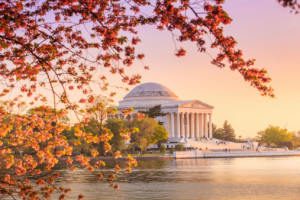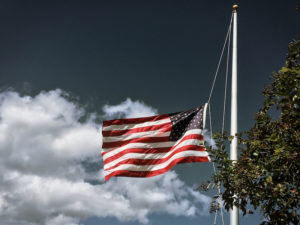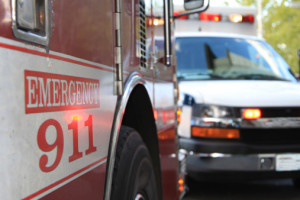
The Supreme Court declines to block New York gun regulations, the VA expands emergency suicide care, and more…
IN THE NEWS
- The U.S. Supreme Court rejected an emergency request from firearms dealers to block certain New York gun regulations. The gun dealers’ lawsuit challenges laws that require security systems at gun stores, mandate background checks for ammunition sales, and prohibit people under 18 years old from entering gun shops without a guardian. The gun dealers’ emergency request relates to their lawsuit in federal court, where their appeal of a district court decision in favor of New York is pending. The latest order follows a Supreme Court ruling earlier this month that declined a separate request to pause other provisions of New York’s gun control measures, which were passed in response to the Supreme Court’s decision in Bruen.
- The U.S. Department of Veterans Affairs (VA) announced that veterans in “acute suicidal crisis”—that is, at imminent risk of self-harm— can now access free emergency treatment, including 30 days of inpatient care and 90 days of follow-up outpatient care. Although the VA already provided emergency suicide care, the expanded policy allows veterans to receive free suicide care at VA or non-VA facilities, regardless of whether the veteran is enrolled in the VA system. The expansion is part of the Biden Administration’s strategy for reducing veteran suicide, which the VA has stated is its highest priority.
- The Bureau of Alcohol, Tobacco, Firearms, and Explosives finalized a rule that requires gun owners to obtain a permit before using firearm stabilizing braces, which convert pistols into short-barreled rifles. The U.S Department of Justice explained that Congress imposed heightened regulations on short-barreled rifles under the National Firearms Act because they are easier to conceal than long-barreled rifles and more dangerous than traditional handguns. U.S. Attorney General Merrick B. Garland stated that the rule will prevent individuals from evading these restrictions “by adding accessories to pistols that transform them into short-barreled rifles.”
- Florida Governor Ron DeSantis announced a proposal to prohibit schools and businesses from enforcing COVID-19 vaccine mandates and masking requirements. The proposal also includes a provision that protects medical professionals from being fired or losing their medical licenses for voicing their professional opinions or religious views. State Surgeon General Joseph Ladapo said that the measures will ensure that medical professionals can “engage in scientific discourse without fearing for their livelihoods or their careers.”
- The Centers for Medicare and Medicaid Services (CMS) announced that it will begin conducting audits of nursing homes’ use of antipsychotic drugs in an effort to reduce on inappropriate prescriptions. The effort is part of the Biden Administration’s strategy to improve the quality of nursing homes in light of recent reports that found that nursing homes have misdiagnosed residents as schizophrenic. If CMS finds that a nursing home has a pattern of misdiagnosing patients with schizophrenia, CMS will lower that home’s rating on its “Care Compare” website, which consumers use to evaluate nursing homes.
- The U.S. Department of Agriculture (USDA) finalized a rule that increases oversight over the production, handling, and sale of products certified as “USDA organic.” The rule updates existing USDA regulations by standardizing the certification process and increasing the amount of data that producers of organic produce must provide inspectors. USDA Under Secretary for Marketing and Regulatory Programs Jenny Lester Moffitt stated that the rule intends to “reinforce the trust of consumers, farmers, and those transitioning to organic production.”
- The Federal Communications Commission (FCC) proposed a rule to improve the accuracy with which wireless communication providers route 911 calls and texts to public safety officials. The FCC explained that providers misroute approximately 23 million calls per year because providers determine the caller’s location based on the location of the cell tower that transmits the call. The proposed rule would require wireless communications providers to implement location-based routing, which routes calls based on the location of the device. This more accurate routing method, the agency stated, will “reduce emergency response times and save lives.”
- The Alcohol and Tobacco Tax and Trade Bureau (TTB) issued a rule that recognizes “Singani”—a spirit distilled from grape wine produced in certain valleys of the Plurinational State of Bolivia—as a distinct classification of brandy. Bolivia petitioned TTB for the classification, citing Bolivian laws that establish Singani as an exclusive product of Bolivia. In exchange, Bolivian officials agreed to recognize Bourbon Whiskey and Tennessee Whiskey as distinct products of the United States. Bolivia will prohibit the sale of products labeled “Bourbon Whiskey” and “Tennessee Whiskey” that are not manufactured in the United States.
WHAT WE’RE READING THIS WEEK
- In a forthcoming article, Daniel E. Walters, associate professor at Texas A&M University School of Law, and Andrew N. Kleit, professor at Pennsylvania State University, argued that Regional Transmission Organizations (RTOs)—nonprofit corporations that plan and manage most of the U.S. electric grid—exclude clean energy interests from decision-making processes. Walters and Kleit observe that, by excluding these interests, RTOs make decisions that are incongruous with public policy encouraging a transition to clean energy generation. The authors urge reform of RTOs’ governance structure to allow for broad public participation and transparency, like that of federal administrative agencies.
- In an article in the Washington and Lee Law Review, Albert Lin, professor at the University of California, Davis School of Law, argued that corporate pledges to achieve net-zero greenhouse gas emissions may not result in meaningful emissions reductions. Lin explained that corporate pledges to offset their greenhouse gas emissions face minimal regulatory oversight. To push more companies to follow through on their pledges, Lin urged the U.S. Securities and Exchange Commission and the Federal Trade Commission to increase oversight by adopting disclosure rules.
- In an article in the Environmental Law Reporter, Madison Hinkle, a community advocate at Mountain Watershed Association, and Jesse Richardson, professor at West Virginia University College of Law, argued that environmental litigation is a “powerful tool” in delaying or canceling pipeline construction. Environmental groups, for example, have sued agencies for neglecting to protect endangered species or for approving rights-of-way for a pipeline on land outside their authority. Hinkle and Richardson suggested that pipeline companies may develop new strategies to address environmentalists’ concerns, and may also begin project preparation earlier in the hopes of overcoming regulatory and legal obstacles.
EDITOR’S CHOICE
- In an essay for The Regulatory Review, Shelley Welton, professor at the University of Pennsylvania Carey Law School, argued that the Federal Energy Regulatory Commission’s (FERC) new Office of Public Participation (OPP) should make its proceedings inclusive and accessible to communities that energy infrastructure impacts most. Welton urged OPP to provide materials that translate technocratic issues for these communities, solicit input about how energy infrastructure affects their lives, and communicate about how their input affects FERC decisions.



